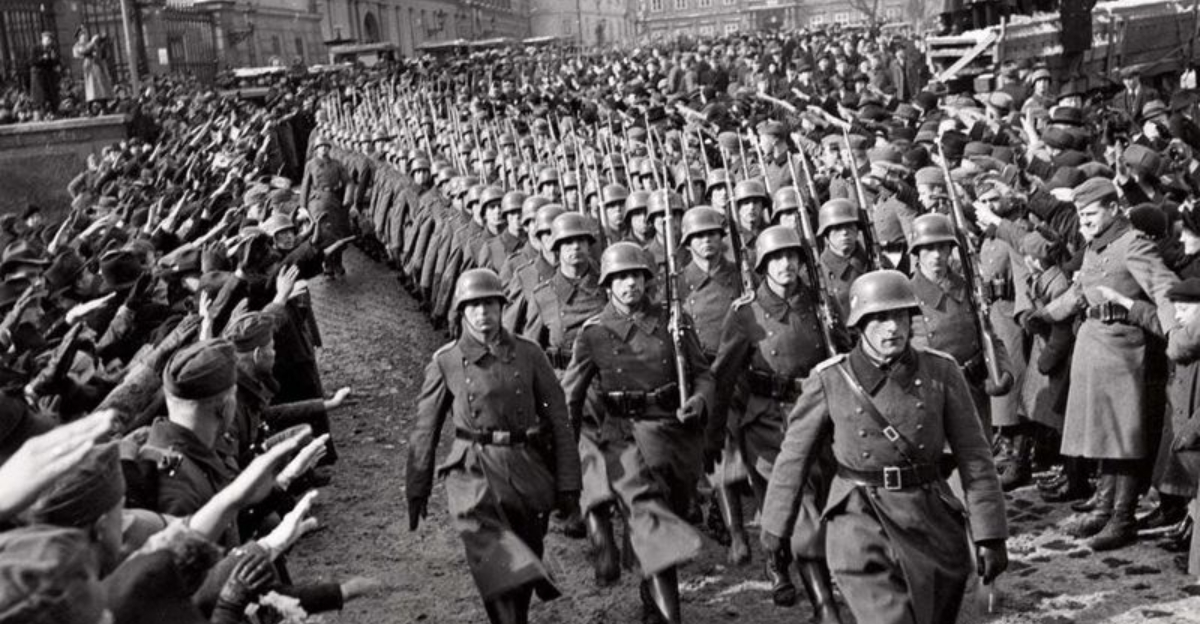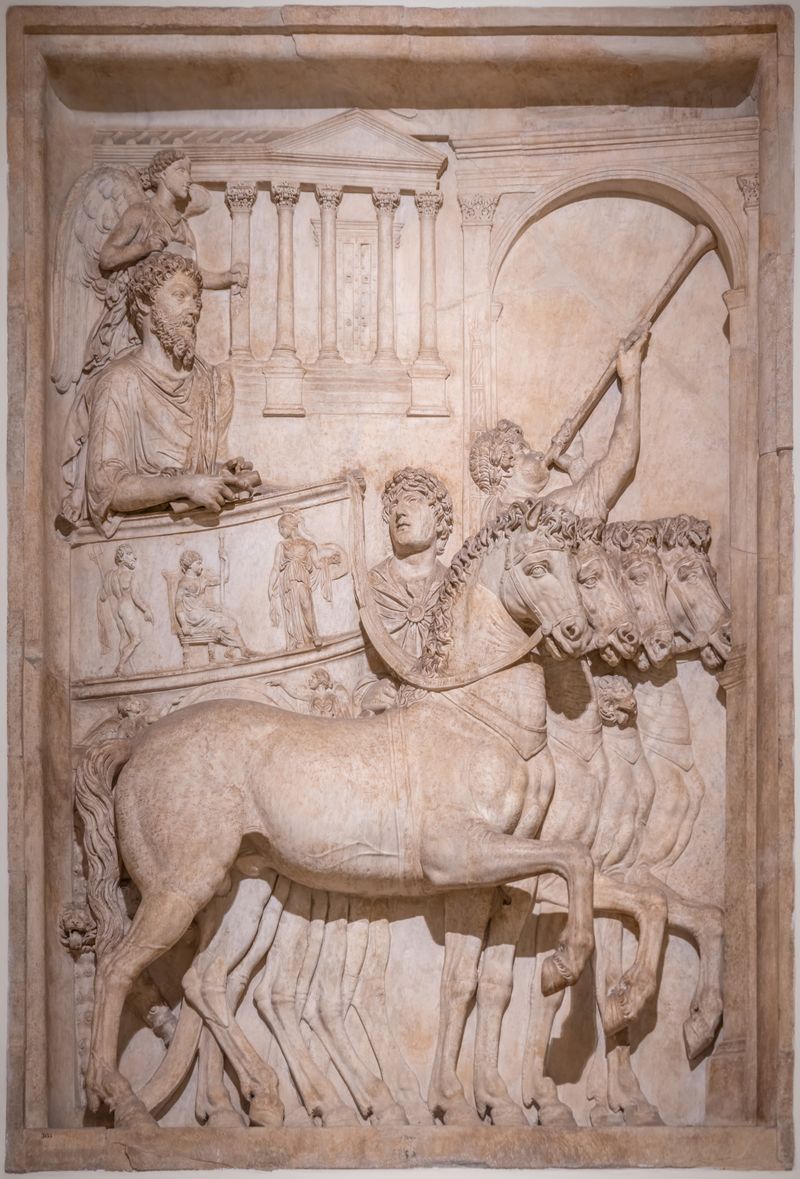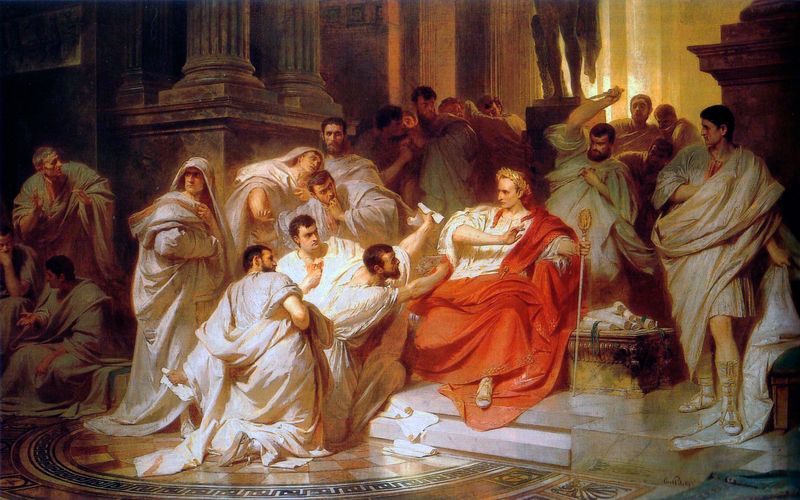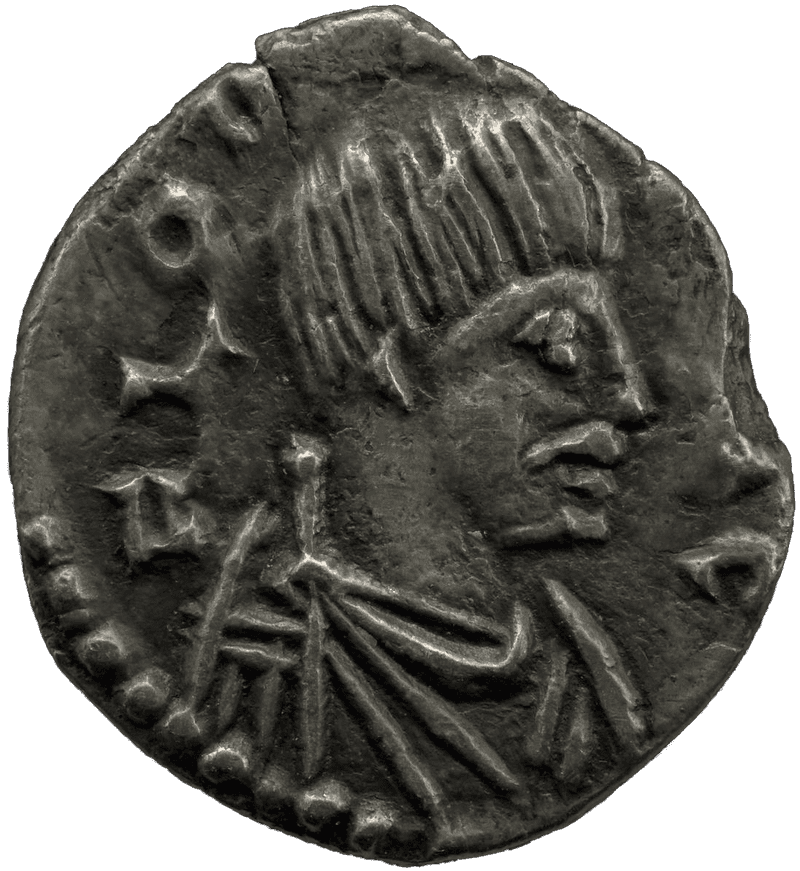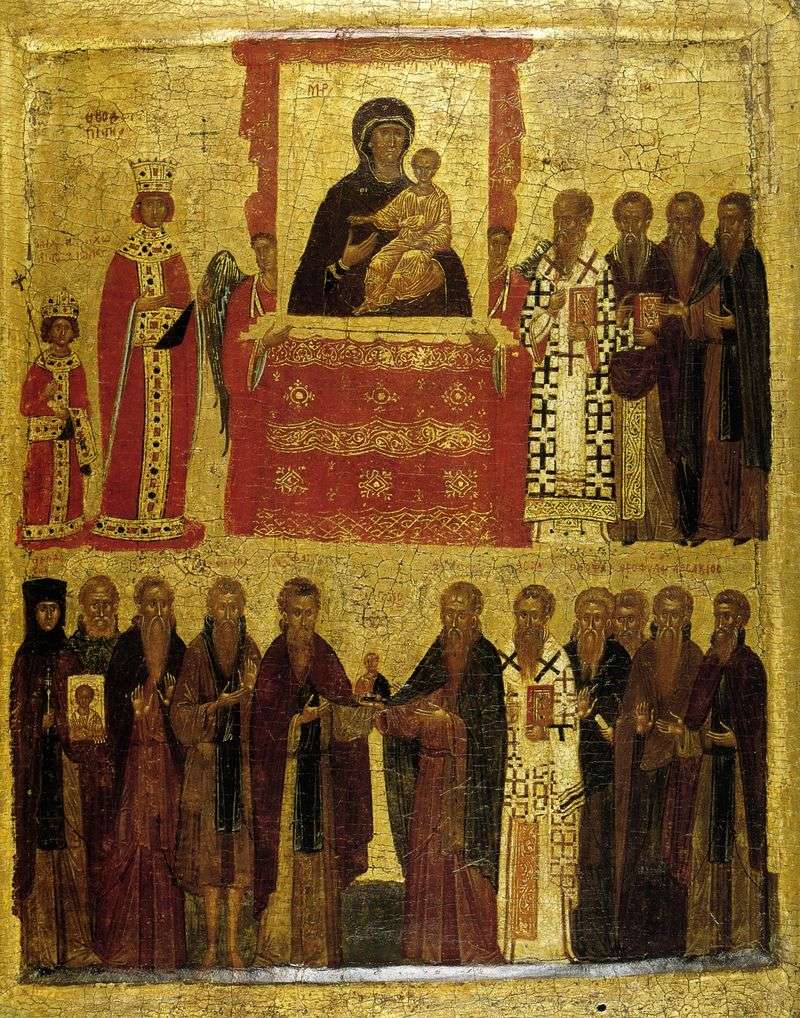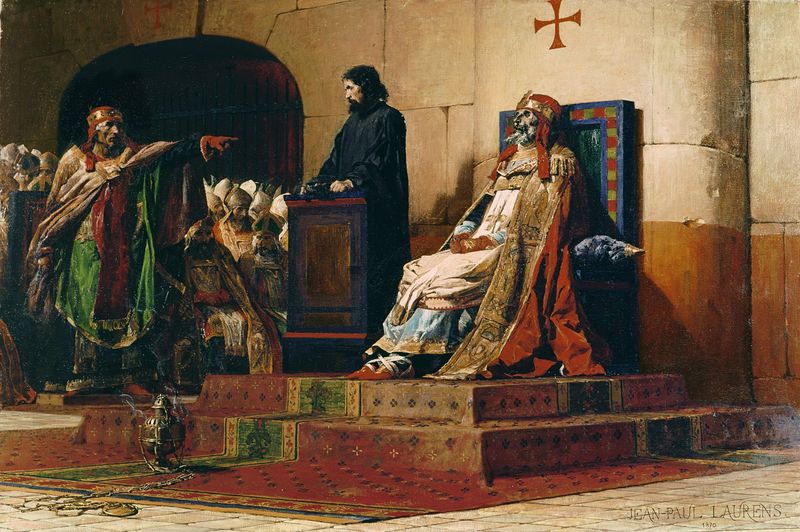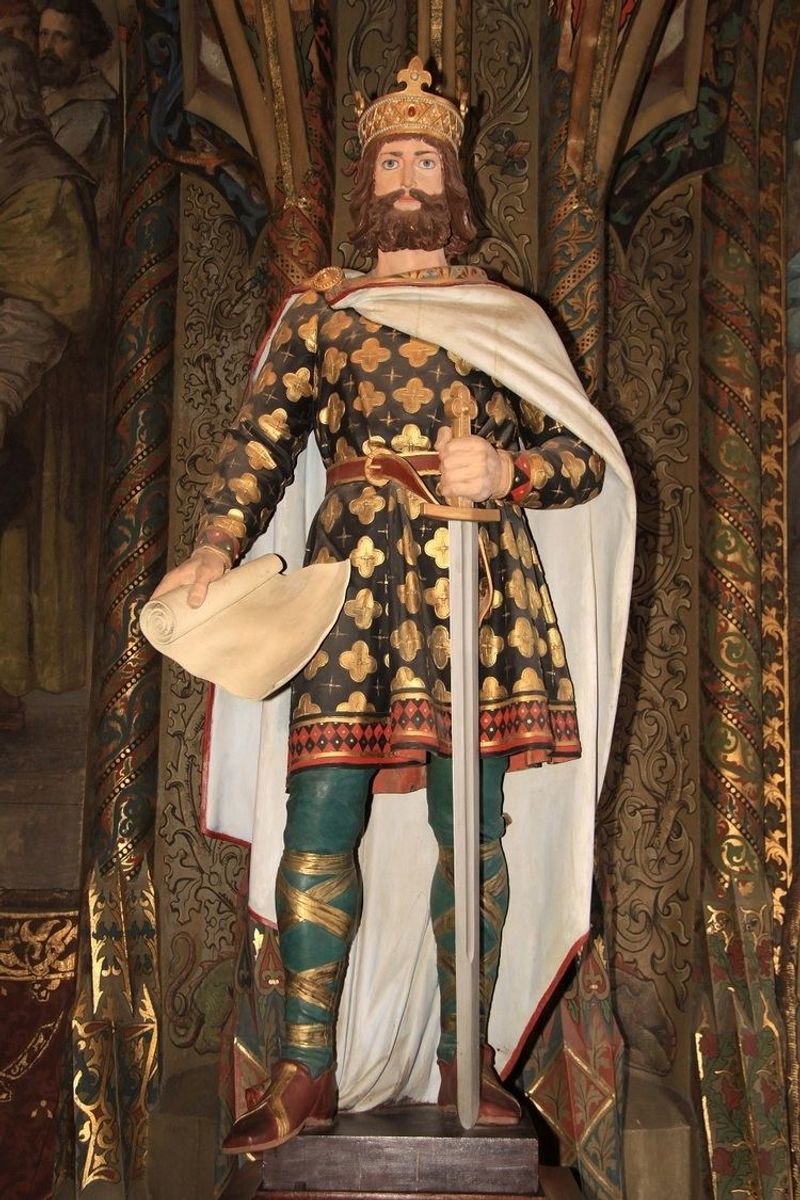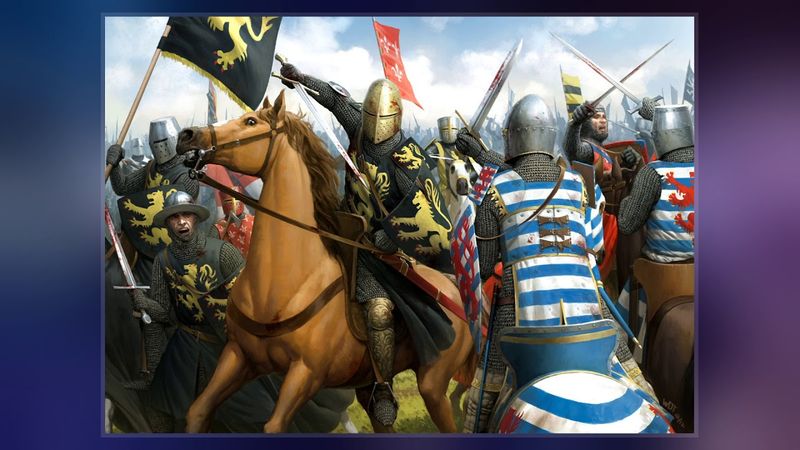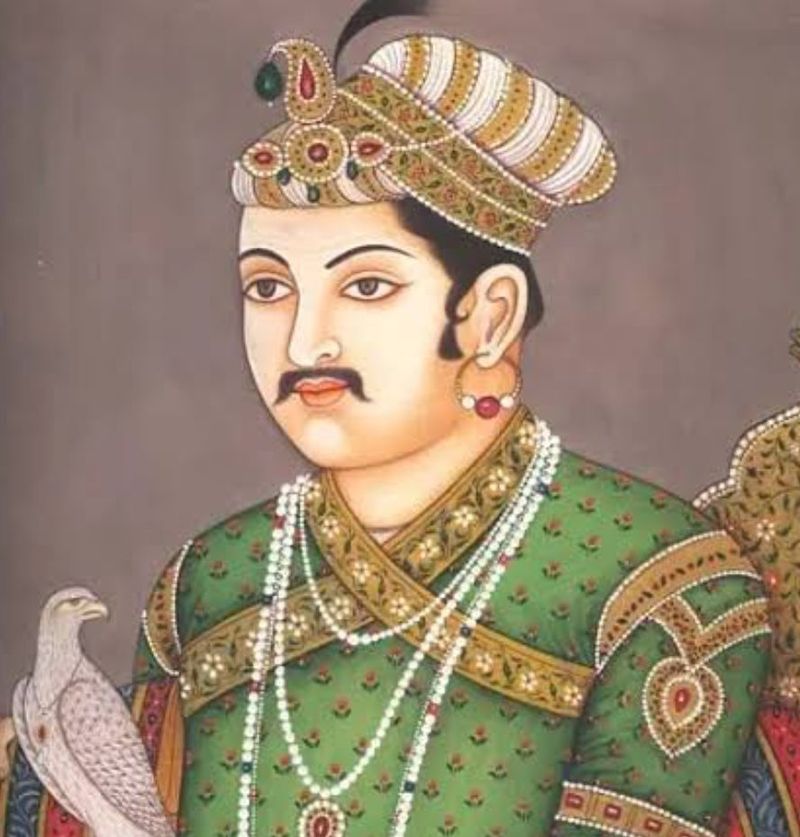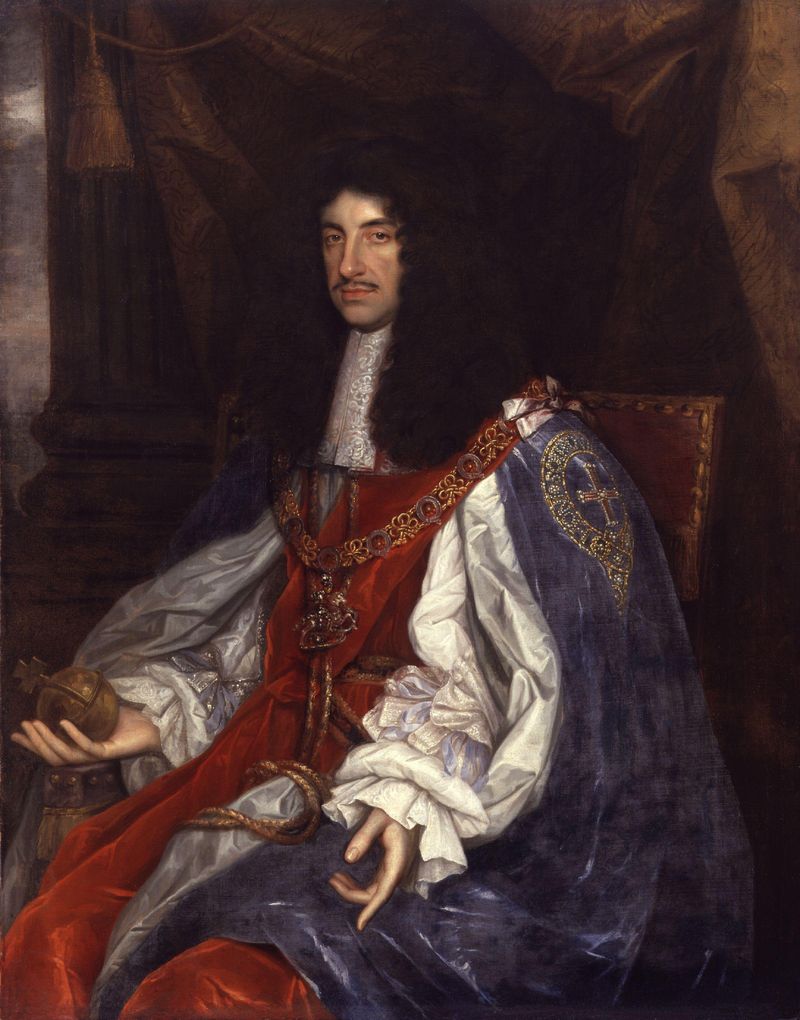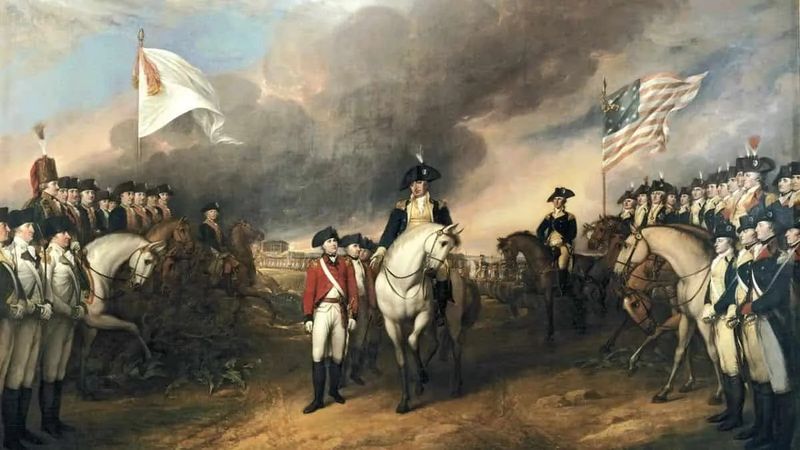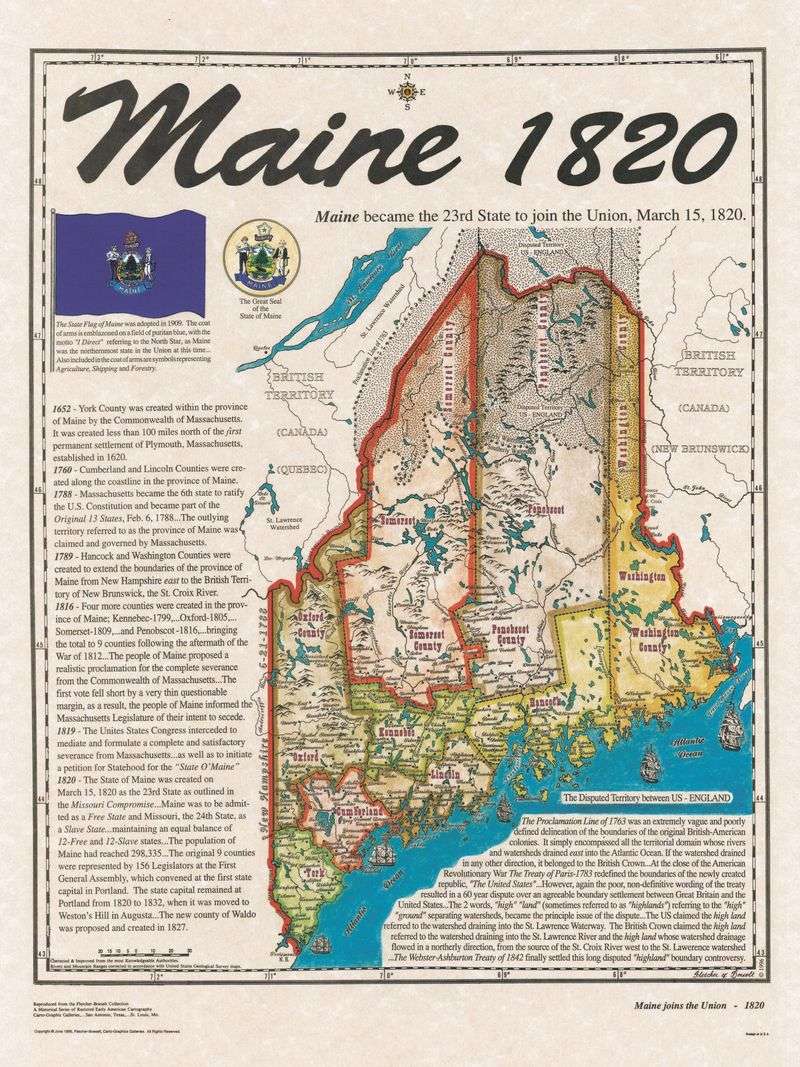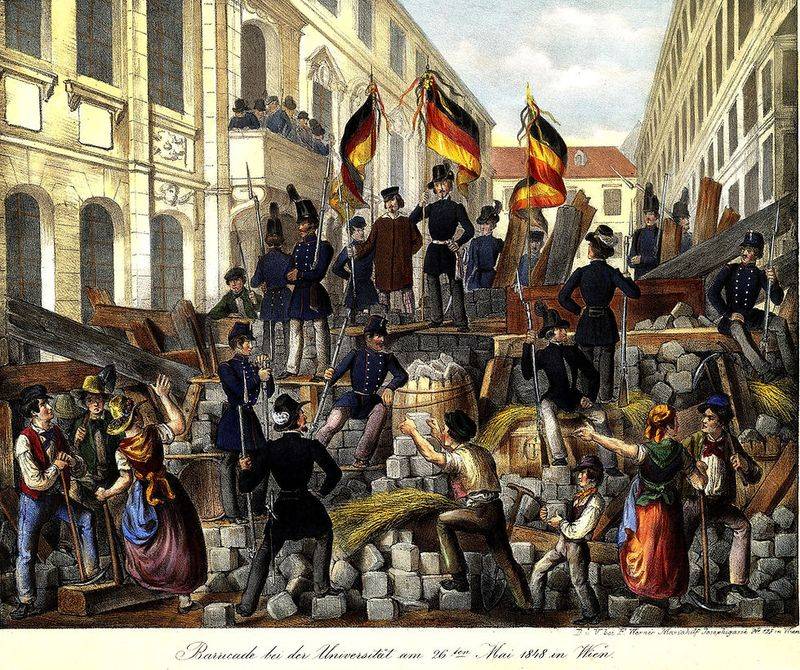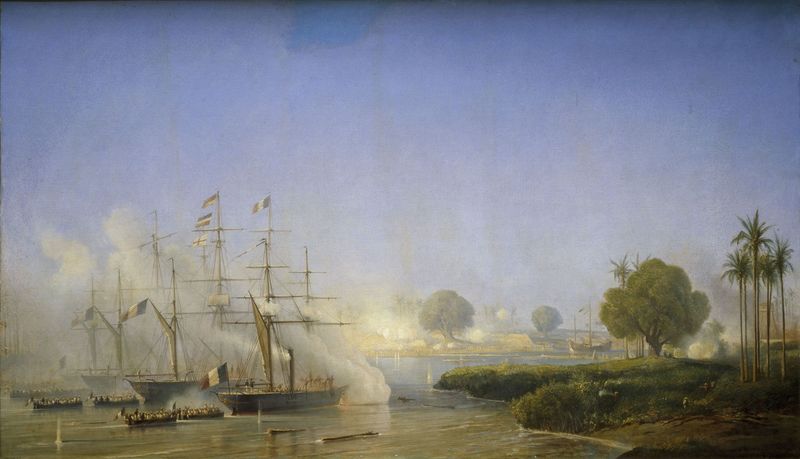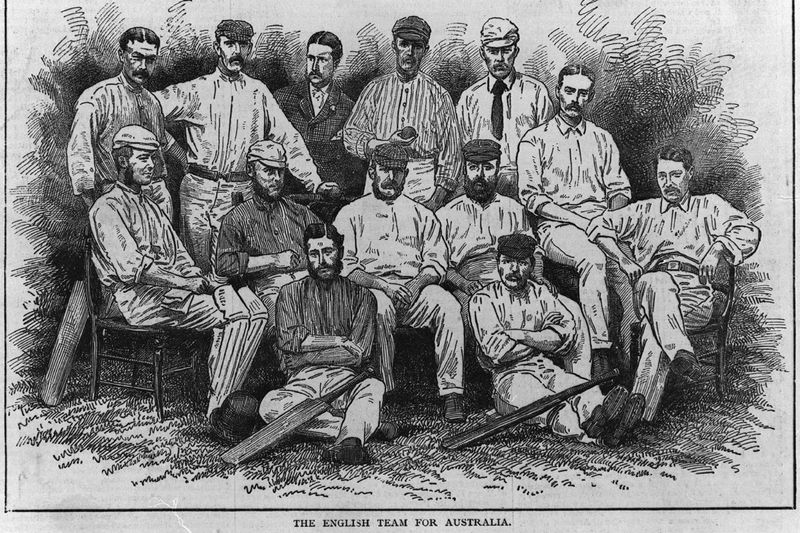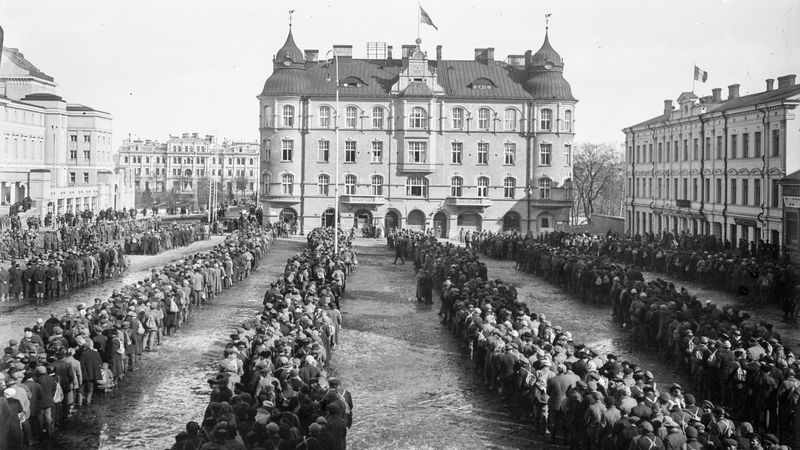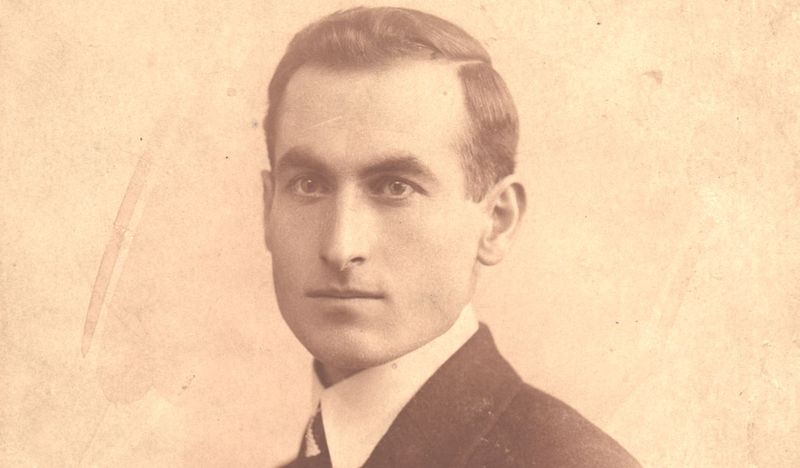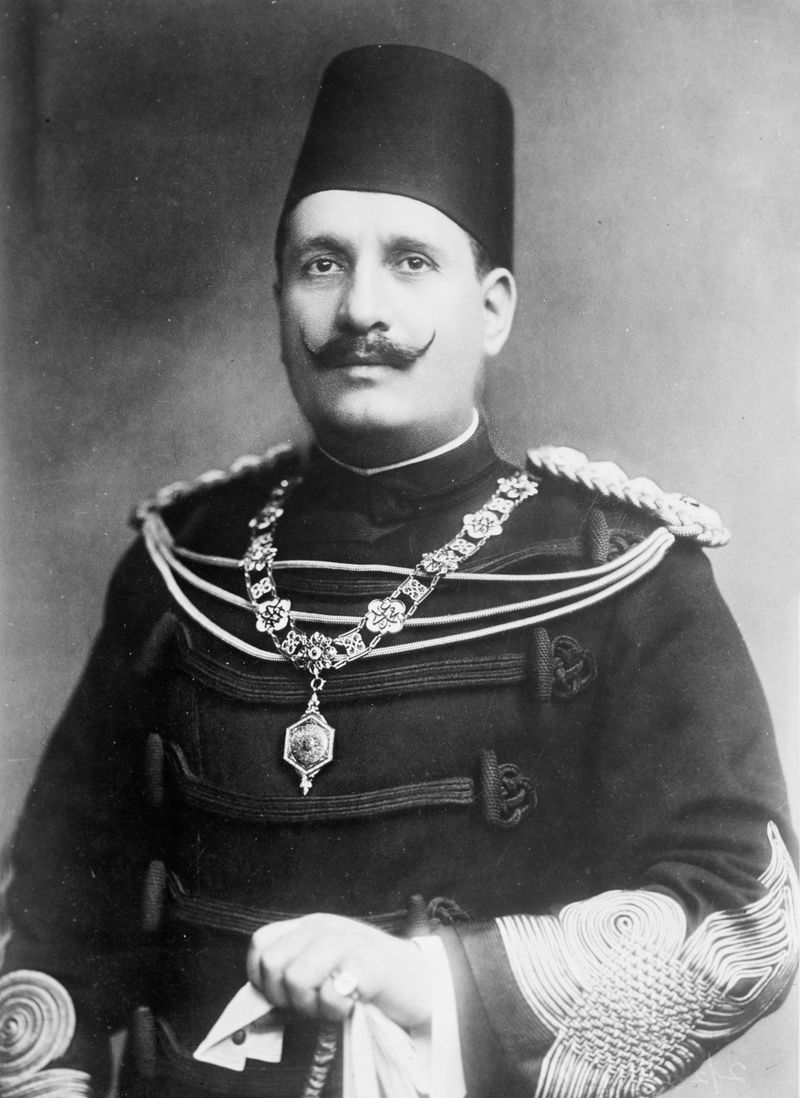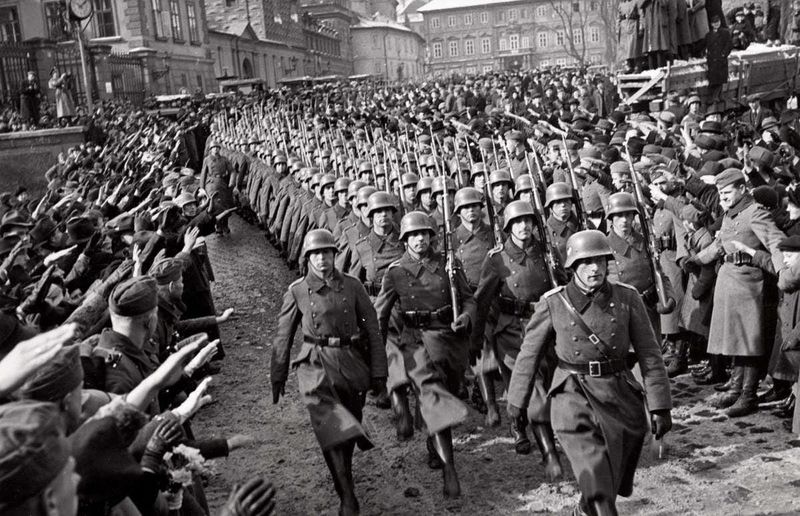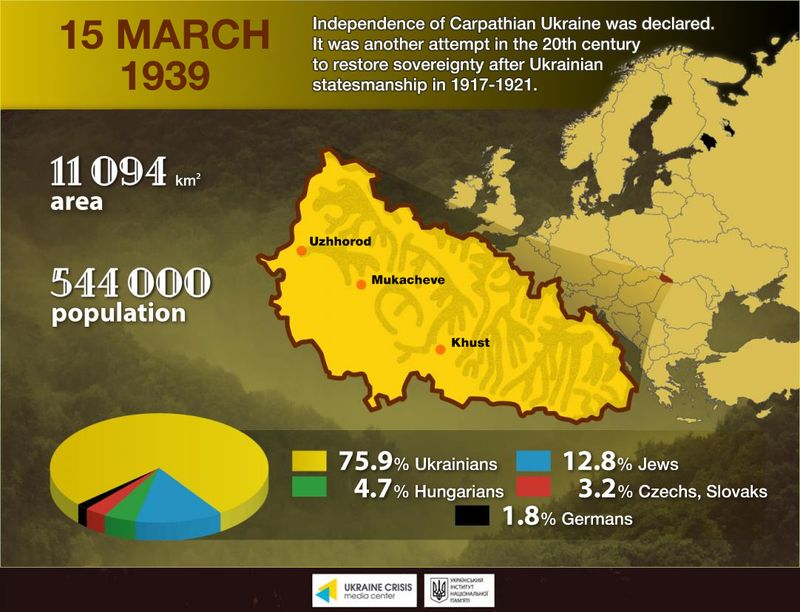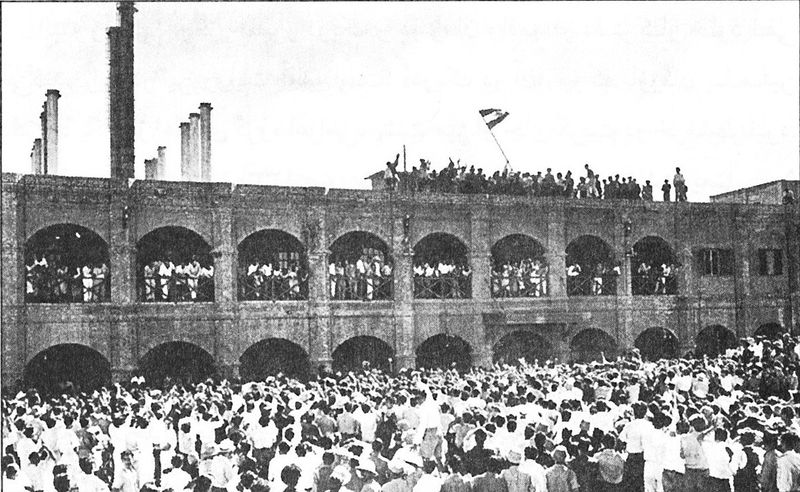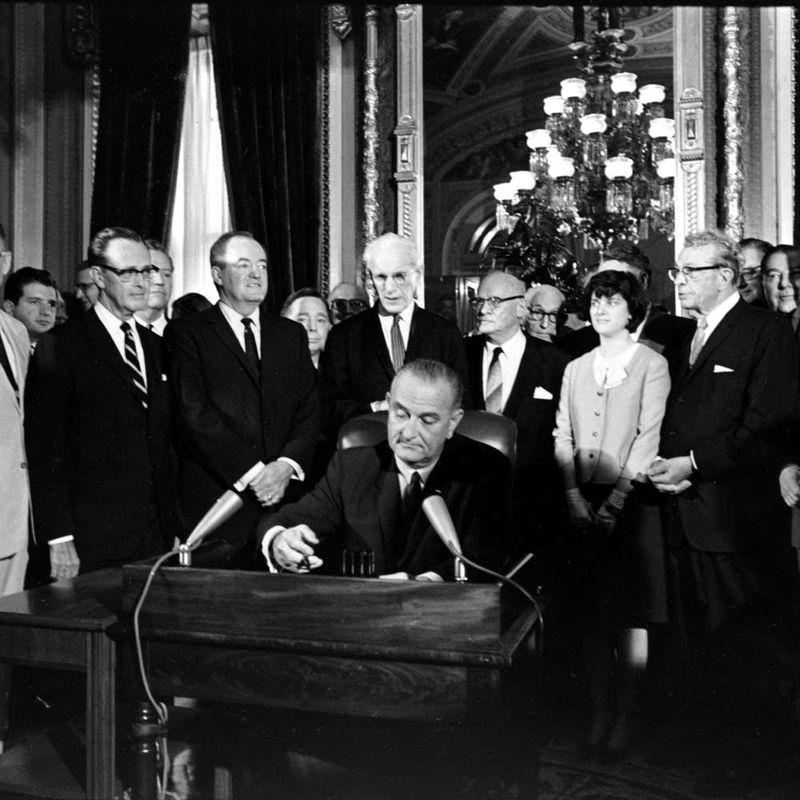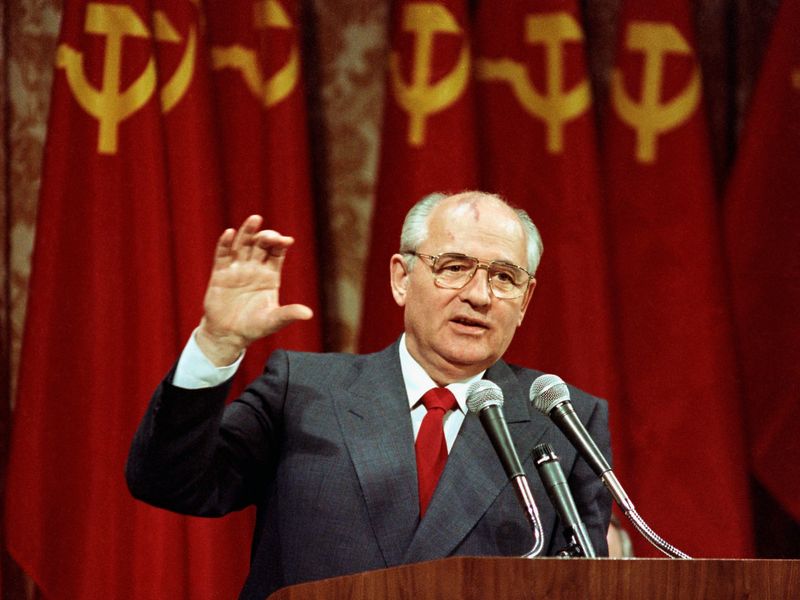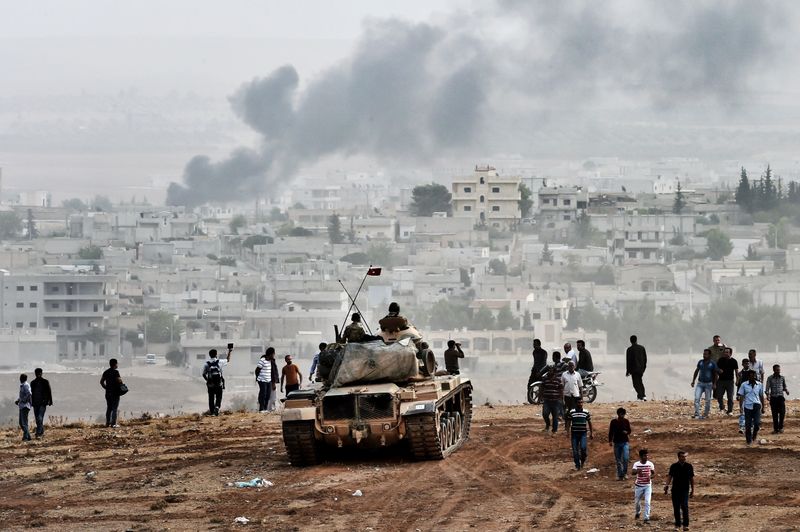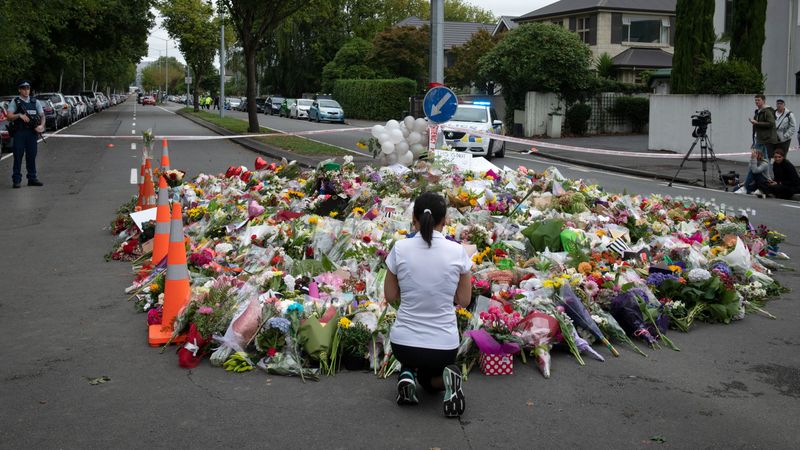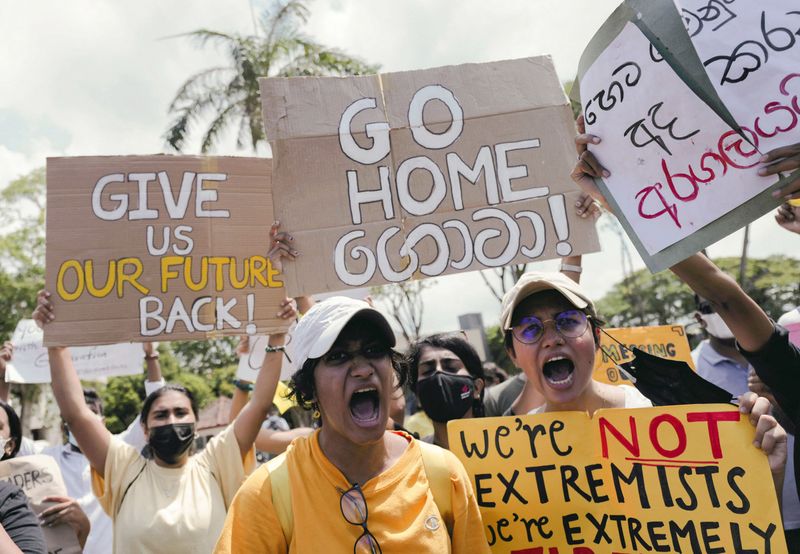March 15, often referred to as the Ides of March, has been a historically significant day over the centuries.
From ancient political power shifts to modern-day revolutions, this day has seen a wide array of notable events.
Here, we delve into 27 historic occurrences that have marked March 15th across different eras, shaping history in various ways.
1. -474 – Roman Consul Aulus Manlius Vulso Celebrates an Ovation for Concluding War Against Veii
In 474 BC, Aulus Manlius Vulso, a Roman consul, celebrated an ovation. This was a lesser form of triumph awarded to him for successfully concluding the war against Veii, a significant Etruscan city.
The celebration was marked by solemn yet jubilant processions through the streets of Rome. Vulso’s leadership and strategy played crucial roles in this victory.
The ovation not only highlighted his military accomplishments but also reinforced Roman dominance in the region.
Citizens participated in the festivities, showcasing the strong bond between Rome’s leaders and its people. It was a moment of pride and reflection for the Roman Republic.
2. -44 – Assassination of Julius Caesar on the Ides of March
On March 15, 44 BC, Julius Caesar, a pivotal figure in Roman history, was assassinated. His death was the result of a conspiracy led by Roman senators, including Brutus and Cassius, who feared his rising power and potential monarchy.
The assassination took place in the Theatre of Pompey. Despite Caesar’s popularity and reforms, his growing influence alarmed many. His death marked a turning point, leading to the end of the Roman Republic and the rise of the Roman Empire.
This historic event has been immortalized in literature, notably by Shakespeare, underscoring themes of betrayal and power dynamics.
3. 493 – Odoacer, First King of Italy, is Killed by Theoderic the Great While Feasting Together
In 493 AD, during a feast meant to symbolize peace, Odoacer, the first King of Italy, was killed by Theoderic the Great. This treacherous act occurred after years of conflict over control of Italy.
Theoderic invited Odoacer to a banquet, ostensibly to celebrate their agreement. However, in a shocking turn, Theoderic assassinated Odoacer. This act of betrayal marked the end of Odoacer’s rule and solidified Theoderic’s power.
The event highlighted the turbulent and often perilous nature of leadership during this period. It served as a stark reminder of the brutal politics that characterized the era.
4. 856 – Byzantine Emperor Michael III Overthrows His Mother, Empress Theodora
In 856 AD, Byzantine Emperor Michael III overthrew his mother, Empress Theodora, who had been ruling as regent. This coup was a power struggle within the Byzantine Empire’s royal family.
Michael, seeking control, boldly moved against Theodora, effectively ending her regency. His actions were driven by a desire to assert his authority and independence. Theodora’s removal marked a significant shift in the empire’s power dynamics.
This event underscored the volatility and complexity of Byzantine politics. Michael’s reign thereafter was marked by significant military and religious developments, shaping the future trajectory of the Byzantine Empire.
5. 897 – Al-Hadi ila’l-Haqq Yahya Establishes the Zaydi Imamate in Yemen
In 897, Al-Hadi ila’l-Haqq Yahya founded the Zaydi Imamate in Yemen. This was a significant event in Islamic history, establishing a new religious and political order.
Yahya, a religious scholar, gained followers due to his charismatic leadership and scholarly reputation. The Zaydi Imamate offered a unique interpretation of Islam, differing from Sunni and Shia doctrines.
Its foundation marked the beginning of a new era in Yemeni history, influencing the region’s religious and political landscape. Yahya’s leadership established a legacy that would endure in Yemen, impacting its culture and governance for centuries to come.
6. 933 – German King Henry the Fowler Defeats Hungarian Forces at the Battle of Riade
In 933 AD, King Henry the Fowler of Germany achieved a significant victory over Hungarian forces at the Battle of Riade. This battle was crucial in defending the German territories from frequent raids.
Henry’s strategic prowess and leadership were instrumental in securing the win. The victory at Riade marked a turning point in the ongoing conflicts with the Hungarians, bolstering German morale and security.
It also solidified Henry’s reputation as a capable and strong ruler. This success laid the foundation for future stability and expansion of the German kingdom under his reign, influencing medieval European history.
7. 1311 – Battle of Halmyros: The Catalan Company Defeats Walter V, Count of Brienne, Taking Control of the Duchy of Athens
In 1311, the Catalan Company, a group of mercenaries, defeated Walter V, Count of Brienne, at the Battle of Halmyros. This decisive victory allowed them to take control of the Duchy of Athens.
The Catalans, renowned for their military prowess, turned the tides of power in the region. Walter V’s forces were outmaneuvered and overwhelmed. The battle was a testament to the strategic and combat skills of the Catalans.
Their victory reshaped the political landscape of medieval Greece. Control of Athens granted the Catalan Company power and influence, altering the region’s history and legacy.
8. 1564 – Mughal Emperor Akbar Abolishes the Jizya Tax on Non-Muslim Subjects
In 1564, Mughal Emperor Akbar abolished the Jizya tax, a levy on non-Muslim subjects within his empire. This progressive move was unprecedented and fostered greater religious tolerance and unity.
Akbar’s decision was rooted in his vision for an inclusive and harmonious society. The abolition of the tax was welcomed by non-Muslims, enhancing Akbar’s reputation as a just and benevolent ruler.
His policy set a precedent for future governance, emphasizing coexistence. This decision played a pivotal role in strengthening the Mughal Empire’s cohesion and stability, reflecting Akbar’s enlightened approach to leadership and cultural integration.
9. 1672 – King Charles II of England Issues the Royal Declaration of Indulgence, Granting Religious Freedom
In 1672, King Charles II of England issued the Royal Declaration of Indulgence. This proclamation granted religious freedom to Catholics and dissenting Protestants. The declaration aimed to promote religious tolerance and reduce persecution.
However, it faced opposition from Parliament, who were wary of increasing Catholic influence. Despite its revocation a year later, the declaration marked a significant moment in the struggle for religious freedom.
It highlighted the ongoing tensions between the monarchy and Parliament. This attempt at tolerance set the stage for future legislative advancements, contributing to the eventual establishment of broader religious liberties in England.
10. 1783 – George Washington Delivers an Emotional Speech to Prevent the Newburgh Conspiracy
In 1783, George Washington delivered a powerful speech to thwart the Newburgh Conspiracy, a potential military coup. Discontented officers, frustrated by unpaid wages, considered rebelling against Congress.
Washington’s eloquence and leadership were pivotal in dissolving the conspiracy. His heartfelt plea emphasized unity and the dangers of undermining the newly-formed nation.
Washington’s intervention preserved the fragile peace following the American Revolution. His actions reinforced the importance of civilian control over the military, setting a lasting precedent.
This event underscored Washington’s dedication to democracy and his influential role in shaping the United States’ early development.
11. 1820 – Maine is Admitted as the 23rd U.S. State
In 1820, Maine was admitted as the 23rd U.S. state as part of the Missouri Compromise. This significant event aimed to maintain the balance between free and slave states.
Originally part of Massachusetts, Maine’s statehood was crucial in addressing the contentious issue of slavery. The compromise allowed Missouri to enter as a slave state while Maine was a free state.
This decision was pivotal in delaying sectional conflict over slavery. Maine’s admission marked an essential chapter in U.S. history, reflecting the complexities of national unity and governance. It highlighted the ongoing struggle to balance differing regional interests.
12. 1848 – Hungarian Revolution Breaks Out, Forcing Habsburg Rulers to Grant Reforms
In 1848, the Hungarian Revolution erupted, challenging Habsburg authority. Inspired by democratic ideals spreading across Europe, Hungarians demanded national independence and liberal reforms.
Led by figures like Lajos Kossuth, revolutionaries rallied thousands. The uprising forced the Habsburg rulers to concede to some demands, including a responsible government and increased autonomy.
Although eventually suppressed, the revolution marked a significant stride towards Hungarian independence. It energized nationalistic movements and highlighted the desire for democratic governance.
This event played a crucial role in shaping Hungary’s national identity and contributed to the broader wave of European revolutions during that period.
13. 1874 – France and Vietnam Sign the Second Treaty of Saigon, Establishing Full French Sovereignty Over Cochinchina
In 1874, France and Vietnam signed the Second Treaty of Saigon, solidifying French sovereignty over Cochinchina. This treaty was a milestone in establishing French colonial rule in Southeast Asia.
It followed the earlier Treaty of Saigon, which had already ceded some territories. The agreement expanded French control and integrated Cochinchina into the colonial framework.
This shift marked a new phase of colonial expansion and dominance. The treaty had lasting impacts on Vietnam’s political and cultural landscape, shaping its colonial history.
It laid the groundwork for further French influence in the region, altering Vietnam’s trajectory for decades.
14. 1877 – First Official Cricket Test Match: Australia vs. England in Melbourne
In 1877, the first official cricket Test match took place between Australia and England in Melbourne. This historic event marked the birth of international Test cricket.
Held at the Melbourne Cricket Ground, the match drew significant attention and laid the foundation for future international cricket competitions. It showcased the sport’s growing popularity and established a competitive rivalry between the two nations.
Australia won the match, setting a precedent in cricket history. The success of this match spurred the development of Test cricket as a major international sport, fostering enduring sportsmanship and competition between cricketing nations worldwide.
15. 1917 – Tsar Nicholas II of Russia Abdicates, Ending the Romanov Dynasty After 304 Years
In 1917, Tsar Nicholas II of Russia abdicated amidst the turmoil of the Russian Revolution. His abdication marked the end of the Romanov Dynasty’s 304-year reign.
This pivotal moment was influenced by widespread discontent, economic strife, and military failures during World War I. Nicholas’s decision to step down was an attempt to quell unrest and prevent further chaos.
However, it only intensified the revolutionary fervor. The abdication led to the formation of a provisional government, setting the stage for Soviet rule.
This event dramatically altered Russia’s political landscape, reshaping its future and influencing global history.
16. 1918 – Finnish Civil War: Battle of Tampere Begins
In 1918, the Battle of Tampere marked a significant episode in the Finnish Civil War. The conflict was between the Red Guards, representing socialist factions, and the White Guards, supporting the Finnish Senate.
Tampere, a key industrial city, became a focal point of military engagements. The battle was fierce and bloody, reflecting the deep political and social divisions within Finland. The White Guards eventually captured the city, marking a turning point in the war.
This victory solidified their control and paved the way for their ultimate triumph. The battle encapsulated the struggles of a nation grappling with identity and autonomy.
17. 1919 – The American Legion is Founded
In 1919, the American Legion was founded by World War I veterans in Paris. This organization aimed to support veterans and promote patriotism. It provided a platform for veterans to advocate for their rights and needs.
The Legion quickly became a significant voice in American society, influencing policies on veterans’ benefits and support systems. Its founding underscored the importance of unity and solidarity among veterans.
The American Legion also played a crucial role in fostering community service and civic engagement. This establishment marked a pivotal moment in the history of veteran affairs, impacting generations of military personnel and their families.
18. 1921 – Armenian Revolutionary Soghomon Tehlirian Assassinates Talaat Pasha in Berlin
In 1921, Armenian revolutionary Soghomon Tehlirian assassinated Talaat Pasha in Berlin. Talaat was one of the architects of the Armenian Genocide, making him a target for justice. Tehlirian’s act was motivated by personal loss and the quest for retribution.
The assassination brought international attention to the atrocities committed against Armenians. Tehlirian was tried and acquitted, as his actions were seen as a moral retaliation against genocide.
This event highlighted the enduring scars of the genocide and the pursuit of justice by survivors. It underscored the complexities of post-war justice and the ongoing impact of historical grievances.
19. 1922 – Fuad I Becomes the First King of Egypt Following Nominal Independence from the UK
In 1922, Fuad I was declared the first King of Egypt following the country’s nominal independence from British control. This marked a new chapter in Egypt’s history, transitioning from colonial rule to monarchy.
Fuad’s reign symbolized national aspirations for self-determination. Although independence was limited, it represented a significant step towards full sovereignty.
Fuad’s leadership faced challenges in navigating the complexities of national governance and international relations. His kingship laid the groundwork for future political developments in Egypt.
This event was pivotal in shaping Egypt’s modern identity and underscored the broader struggles of post-colonial nations seeking autonomy.
20. 1939 – Germany Occupies Czechoslovakia
In 1939, Nazi Germany occupied Czechoslovakia, a crucial moment in the lead-up to World War II. This act of aggression violated the Munich Agreement, which had aimed to appease Hitler by allowing annexation of the Sudetenland.
The occupation demonstrated Hitler’s expansionist ambitions and disregard for diplomatic agreements. It marked a significant escalation in European tensions, leading to the eventual outbreak of the war.
Czechoslovakia’s occupation highlighted the vulnerabilities of smaller nations and the failures of appeasement policies.
This event underscored the urgent need for collective resistance against fascist aggression, reshaping international alliances and strategies during the war.
21. 1939 – Carpatho-Ukraine Declares Independence but is Annexed by Hungary the Next Day
In 1939, Carpatho-Ukraine declared independence, seeking sovereignty amidst the turbulent political landscape of Europe. However, this newfound independence was short-lived, as Hungarian forces annexed the region the following day.
The declaration was part of the broader nationalist movements sweeping across Eastern Europe. Despite the brief period of autonomy, Carpatho-Ukraine’s attempt underscored the complex dynamics of regional politics and the challenges faced by small nations.
The annexation reflected the aggressive territorial ambitions of neighboring countries. This event highlighted the fragility of diplomatic agreements and the broader geopolitical struggles on the eve of World War II.
22. 1951 – Iran Nationalizes Its Oil Industry
In 1951, Iran nationalized its oil industry under the leadership of Prime Minister Mohammad Mossadegh. This bold move aimed to assert national control over Iran’s natural resources, previously dominated by foreign companies.
The decision was hugely popular among Iranians, symbolizing a stand against colonial exploitation. However, it sparked significant international backlash, particularly from Britain.
The nationalization led to economic and political tensions, culminating in a CIA-backed coup in 1953.
Despite the challenges, this event marked a critical chapter in Iran’s modern history, highlighting issues of sovereignty and economic independence. It remains a pivotal moment in the global discourse on resource control.
23. 1965 – U.S. President Lyndon B. Johnson Delivers “We Shall Overcome” Speech on Voting Rights
In 1965, President Lyndon B. Johnson delivered the historic “We Shall Overcome” speech to Congress. This landmark address highlighted the urgent need for voting rights legislation.
Johnson passionately called for the elimination of racial discrimination in voting. His speech was a direct response to the brutal events in Selma, Alabama, which had shocked the nation’s conscience.
Johnson’s eloquence and determination were pivotal in galvanizing support for the Voting Rights Act.
This legislation became a cornerstone of the civil rights movement, ensuring greater electoral participation for African Americans. The speech underscored America’s commitment to equality and justice for all citizens.
24. 1990 – Mikhail Gorbachev Becomes the First President of the Soviet Union
In 1990, Mikhail Gorbachev became the first President of the Soviet Union. This historic event marked a significant transformation in Soviet governance.
Gorbachev’s presidency was characterized by reforms aimed at political openness and economic restructuring. Known as glasnost and perestroika, these policies sought to revitalize the Soviet system.
His leadership faced immense challenges, including managing nationalistic movements and economic instability. Gorbachev’s presidency ultimately led to the dissolution of the Soviet Union in 1991.
This event reshaped the global political landscape, ending decades of Cold War tensions. Gorbachev’s role remains pivotal in understanding the trajectory of post-Soviet states.
25. 2011 – The Syrian Civil War Begins
In 2011, the Syrian Civil War began, ignited by nationwide protests against President Bashar al-Assad’s regime. The conflict arose from demands for political reform, economic freedom, and an end to government corruption.
Initial peaceful protests were met with brutal government crackdowns, escalating into a full-scale civil war. The conflict attracted various international actors, complicating the situation further.
The war had devastating humanitarian consequences, resulting in massive displacement and loss of life.
This ongoing crisis highlighted the complexities of Middle Eastern politics and the challenges of international intervention. It remains one of the most significant conflicts of the 21st century.
26. 2019 – Christchurch Mosque Shootings Kill 51 People in New Zealand
In 2019, New Zealand faced a horrific tragedy when a gunman attacked two mosques in Christchurch, resulting in the deaths of 51 people. This act of terrorism shocked the nation and the world, highlighting the dangers of extremist ideologies.
The attack prompted a swift response from the New Zealand government, leading to changes in gun laws and heightened security measures. It also sparked widespread discussions on social cohesion and tolerance.
The community of Christchurch and New Zealand as a whole demonstrated remarkable resilience and unity in the face of adversity, emphasizing themes of healing and solidarity.
27. 2022 – Nationwide Protests Begin in Sri Lanka Amid Economic Collapse
In 2022, Sri Lanka experienced a wave of nationwide protests triggered by severe economic collapse. Citizens took to the streets to demand government accountability and reform.
The economic crisis, characterized by inflation and shortages, deeply affected everyday life. Demonstrations were driven by public frustration over corruption and mismanagement.
The protests reflected the broader struggles faced by many nations dealing with economic instability. Sri Lanka’s response to these challenges involved navigating complex political and economic landscapes.
The protests underscored the power of collective action and the enduring demand for transparency and justice in governance, resonating globally.
